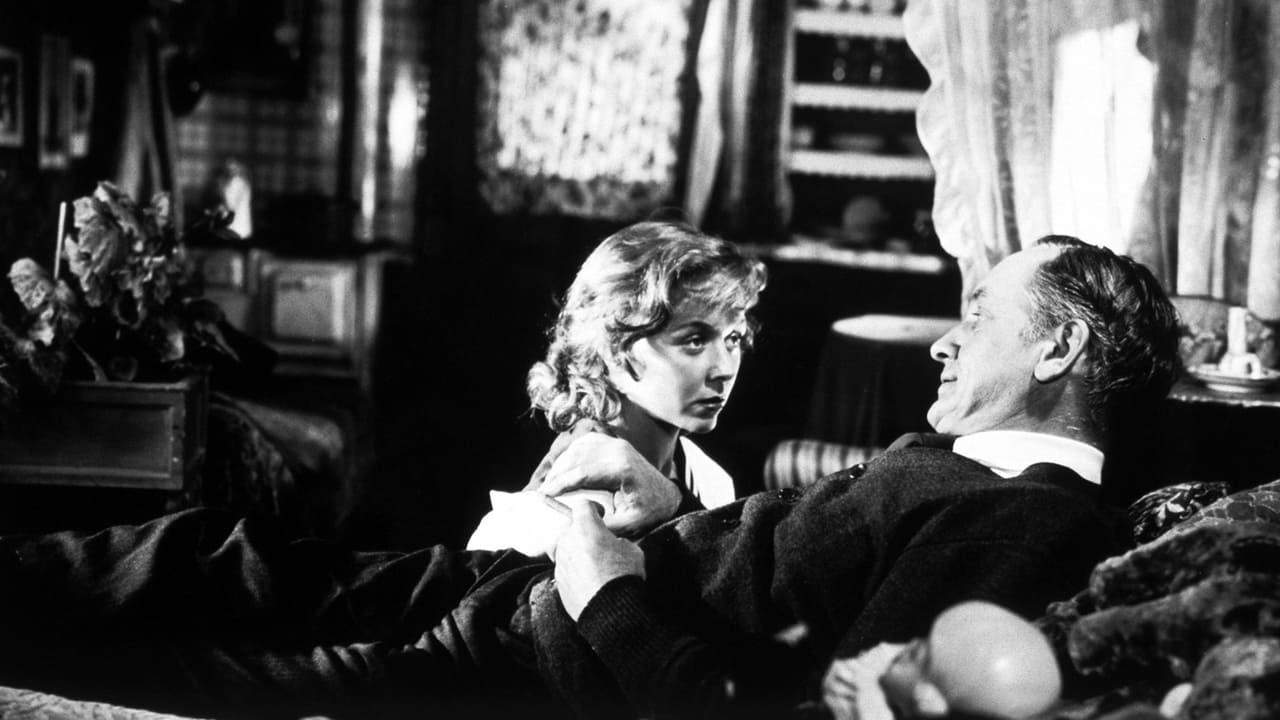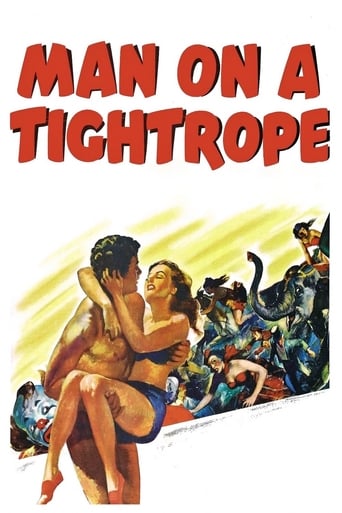

Chilling drama reflecting the cold war era when a Czechoslovak circus troupe plots a daring escape to freedom.Both Terry Moore and Gloria Grahame give wonderful performances as the daughter and second wife of circus owner Frederic March, who plots the escape.March is given another great role in this film. Grahame, as the vulnerable wife with little to do in her life, is in her second circus film picture of her career within a year. OF COURSE, i'm referring to 1952's THE GREATEST SHOW ON EARTH. Her emotions shown here are far better than in her Oscar win for BAD AND THE BEAUTIFUL. Ditto for Terry Moore in comparison to COME BACK,LITTLE SHEBA.As the suspicious police inspector eventually done in for failing to follow the rules, Adolphe Menjou shows his mettle.
... View MoreThis is a really fine movie, with some marvelous subtlety and powerful metaphor, despite the fact it shows its age. Great editing, good script, some superb scenes. I can't understand why it is not more widely known and appreciated. The Cold War is simply the setting; the unprepossessing story means far more.For those who might be interested, this was the favorite movie of American poet Richard Hugo (1923-1982), who wrote several pages about it in his posthumously published 1986 autobiography, The Real West Marginal Way. A couple of Hugo's comments:"The border becomes a kind of symbolic line separating the will from the imagination, the world of serious organizational adult responsibility from the paradise of childhood play.""More than anything else, the music {of the amateurish circus musicians} attests to the poor odds facing not only the tacky circus but humanity itself."
... View MoreIn 1952,Elia Kazan agreed to cooperate with the House AntiAmerican Activities Committee.That would ruin some of his colleagues' (directors,actors,writers) career ;he was not the only one:Edward Dmytryk followed his steps .Both felt remorse and both could never completely get over it:Dmytryk's "the juggler" "the sniper" and even "the Caine mutiny" are full of hidden messages (check those titles)."Man on a tight rope" was a movie that made sense.One of the most Anti-Communist movie of that era,of course a propaganda movie,it was never released ,for instance,in France ,because there were commies in the government.It was recently given a ridiculous French title ("Le cirque en révolte" =rebellious circus)for its first screening on TV.Time has passed.Now who can still ignore what was happening behind the Iron Curtain?Today's generations can no longer be shocked when you see how low Communist parties have sunk in Europa (if the French Communist candidate ,Marie-George Buffet reaches 3% the votes in the FRench election next week,that will be quite a feat!) Given it is a propaganda movie,and considering Kazan's less-than-comfortable situation,"man on a tight rope" is a remarkable work,for,although Kazan was burning with a desire to get his messages across,his art survived the heavy intentions.Lyricism -which would come to the fore in "East of Eden" or "Splendor in the grass" - is already present in the luminous scene of the lovers' swimming.One should note that this scene is followed by Cernik's first questioning in a dark office .The circus ,what a transparent metaphor !That the Czekolovakian authorities should be infuriated by a simple clowns number speaks volumes,more than one hour of rhetoric.Inside the circus,there 's nothing but suspicious minds.Everyone suspects everyone,from a dwarf to an ex-deserter to a lion-tamer to the manager's(no longer owner:the circus belongs to the people now) daughter.The final,which involves the whole circus trying to get to the Bavarian border,is masterfully directed ,with an unusually inventive of faces in close shots.I've always thought that Eisenstein was one of Kazan's biggest influence.Kazan uses the circus people in a stunning way.Cernik is a modern Mosis ,when they arrive in the promised land....Completely overshadowed by its excellent follow-up "on the waterfront"-which is also a try to justify informing","Man on a tight rope" must be brought of oblivion.
... View MoreKazan, in his "A Life", describes this movie mostly in terms of early-morning bonding with his crew, but while it contains far fewer emotional lightning-bolts than most Kazan films, it also contains some incredibly poetic violence. Even though it's hard to tell if it's just hastily staged or artistically muted, one shot of a sentry being killed just below the screen is both intimate and shielding. The battle scenes are exciting, short, and brilliant. Kazan takes no credit at all, saying that much of the film was devised by producer Gerd Oswald and cinematographer Georg Kraus. Strange and sparse, this is a very interesting film.
... View More